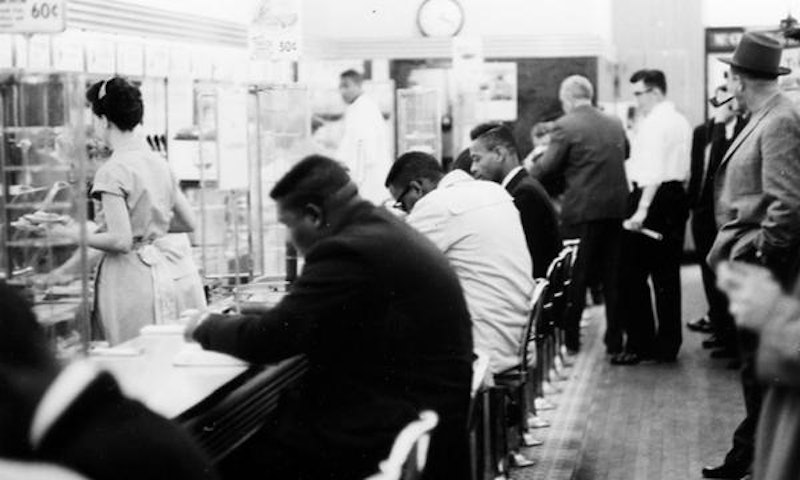News
Famed Civil Rights Activists Arrest Records Erased

In 1961, nine black men were arrested for attempting to integrate a "whites-only" dining establishment in Rock Hill, South Carolina. Fifty-four years later, the eight Friendship Junior College students, led by civil rights organizer Thomas Gaither, have become celebrated icons of the civil rights movement — but their arrest records remain intact. On Wednesday, Kevin Brackett, the solicitor for South Carolina's York and Union counties is expected to ask that the convictions of the "Friendship Nine" finally be erased and the men's arrests vacated.
In January of 1961, students Willie McCleod, Robert McCullough, W.T. "Dub" Massey, Clarence Graham, James Wells, David Williamson Jr., John Gaines, and Mack Workman, together with Gaither, had attempted to recreate the sit-in protest by Lanny Goldfinch, Rudy Lombard, Cecil Carter Jr., and Oretha Castle (known collectively as the "CORE Four") from one year earlier in 1960, by peacefully entering McRory's variety store and ordering sodas, hamburgers, and coffee from the "whites-only" counter. The men were refused service and immediately arrested and convicted of trespassing and breach of peace. They elected to serve time doing hard labor rather than allow their fellow activists to bail them out and give money to institutions that continued to permit segregation. Their peaceful demonstration was later followed by several similar protests across the South.
In today's climate of unrest, the men maintain that peaceful protest is vital.
"We have to continue what we're doing. If we're backing off from what we've done, then there's a problem here," Massey said to the Associated Press in an interview, adding that they hoped their example would set the precedent for today's activists.
The "Friendship Nine," as they've been dubbed, are not the only ones calling for peace: Following the shooting death of Ferguson, Missouri, teen Michael Brown, activists and family members made it a point to urge nonviolent protest as well, despite their grief. "Let's not make noise, let's make a difference," said Brown's family in a statement. When angry riots and looting broke out later that night, following the announcement of a non-indictment for Officer Darren Wilson (who had pulled the trigger), President Obama himself took to the podium to chide those involved. In a statement to the press, he explained:
There are ways of channeling your concerns constructively, and there are ways of channeling your concerns destructively. ... The vast majority of peaceful protesters, they understand it as well. There is never an excuse for violence, particularly when there are a lot of people out there who are willing to work on these issues.
After the tragic death of Eric Garner, the black Staten Island man who died after being placed in a police chokehold, Obama once again defended the importance of nonviolent protests, saying, "The value of peaceful protests, activism, organizing is it reminds the society this is not yet done ... When [protests] turn violent, then they're counterproductive."
Graham insists that, in the case of civil rights activism in today's society, nothing will change if the words of President Obama and other leaders are not heeded meaningfully and with real intent by those who are willing to take a stand. He told the Associated Press:
Maybe it might change some of their minds about some of their actions. Until the hearts change, there won't be any changes. We still insist that nonviolence is the way to go.
For the "Friendship Nine," nonviolence and peaceful protest might have just absolved them of their past records.
"It's been a long wait," Graham told the Associated Press. "We are sure now that we made the right decision for the right reason. Being nonviolent was the best thing that we could have done."
Images: Charlotte Observer/Twitter, WSOCTV/Twitter, Getty Images (1)